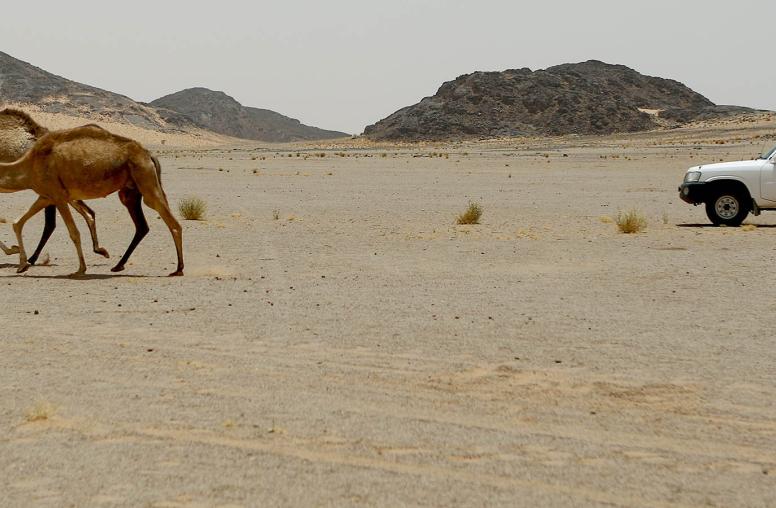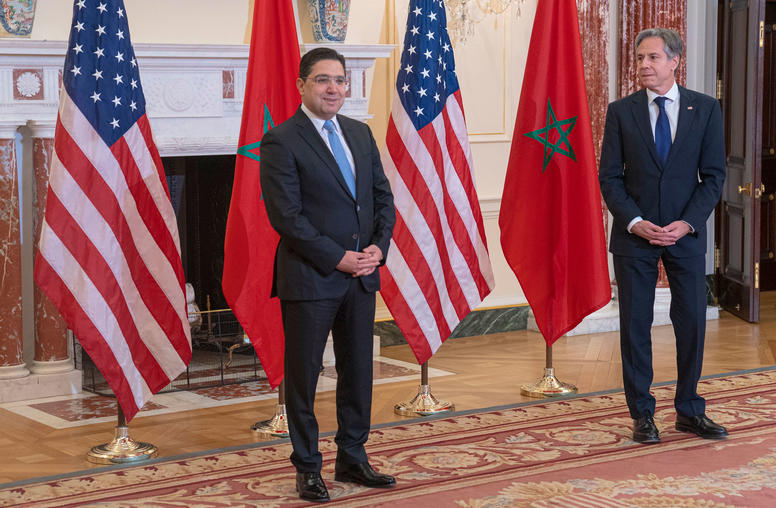Truth Commission: Morocco
Truth Commission: Equity and Reconciliation Commission
Duration: 2004 – 2005
Charter: Dahir (Royal Decree) No. 1.04.42
Commissioners: 16
Report: Public report
Truth Commission: Equity and Reconciliation Commission (Instance Equité et Réconciliation, IER)
Dates of Operation: December 2004 - November 30, 2005 (12 months)
Background: After Morocco gained full independence in April 1956, Mohammed V facilitated growth and reform, but he feared opposition takeover and used a strong hand to quell dissenting movements. Hassan II became King in 1961 and continued the oppressive practices of the former King. In 1965, after an opposition party won a small block in the legislature, King Hassan II took control over legislative power, repealing an earlier promise of legislative independence. Secret detention, arbitrary arrest, and disappearances of political opponents became common practices during the era commonly known as the “years of lead” (les années de plomb).
Hassan II created the National Consultative Council on Human Rights in 1990 and began releasing detainees as a result of public protests. Mohammed VI, Hassan's son, succeeded his reign after the King's death in 1999. King Mohammed VI, sensing mounting pressure from the people, established a mechanism for reparations for past abuses. (The Independent Commission of Arbitration/Indemnity Commission). Many victims and family remained unsatisfied with the level of information available about past crimes; therefore, Mohammed VI established the Equity and Reconciliation Commission on January 7, 2004.
Charter: Dahir (Royal Decree) No. 1.04.42 (PDF-162KB), April 10, 2004
Mandate: The Equity and Reconciliation Commission’s mandate was to investigate forced disappearances and arbitrary detention between Morocco’s independence in 1956 and 1999, to rule on reparation requests pending before the former Independent Commission of Arbitration (created in 1999), and to determine “the responsibility of the state organisms or any other party”.
Commissioners and Structure: The Equity and Reconciliation Commission was comprised of sixteen commissioners appointed by the King, but included only one woman. Driss Benzikri, a former political prisoner and human rights activist, headed the commission. Five of the commissioners were former political prisoners, including two who had been exiled.
Report: The Equity and Reconciliation Commission’s final report was delivered to King Mohammed VI on December 1, 2005, and it was released to the public on December 16, 2005. The full Arabic version is on the IER’s homepage, which also contains summaries in French and Spanish. The Moroccan National Human Rights Institution published an English summary of the report.
Findings:
Conclusions
- The IER determined the fate of 742 individuals and established the role of the state in the political violence during the period covered by its mandate.
- The report did not mention individuals responsible for abuses and hearing participants had to sign an agreement not to identify individuals attributed with responsibility.
Recommendations
- The report recommended a diminution of executive powers, the strengthening of the legislature, and independence of the judiciary.
- The IER further recommended reforms in the security sector and changes in criminal law and policies, including the development of laws against sexual violence.
- It recommended that Morocco should ratify the International Criminal Court (ICC) statute and abolish the death penalty.
- Authorities were encouraged to pursue the investigations further.
- More than 16,000 requests for reparations were reviewed, and 9,779 victims were recommended to receive financial, medical, and psychological assistance. It was suggested that some communities should receive communal reparations.
Subsequent Developments:
Reforms
- The King publicly endorsed the recommendations of the Commission and asked the pre-existing Consultative Council on Human Rights to pursue follow-up action.
- In Spring 2011, King Mohammed VI announced in Dahir (Royal Decree) No. 1.11.19 of March 1, 2011 that the Consultative Council on Human Rights shall be replaced by an independent Council on Human Rights, vested with additional competencies and in line with the United Nations' Principles relating to the Status of National Institutions.
- The King also announced that the recommendations of the IER should be incorporated in a revised constitution.
- The ICC Statute had not been ratified nor have the death penalty laws been repealed as of early 2011.
Prosecutions
- No trials have taken place, and some alleged perpetrators continue to hold high government posts.
- Independent from the Moroccan commission, a French judge prepared a case against five Moroccan officials in connection with the disappearance of Socialist Opposition leader Mehdi Ben Barka in Paris on October 29, 1965.
Reparations
- In August 2007, the Consultative Council on Human Rights announced that 23,676 people received compensation for human rights violations committed during the reign of Hassan II.
- At the end of 2007, the distribution of individual compensation to victims was almost completed, and $85 million USD was distributed to approximately 16,000 individuals. An institutional mechanism was established to manage the implementation of communal reparation programs.
Special Notes: The Equity and Reconciliation Commission was the first truth commission in the Arab world.
The final report was silent on the Western Sahara, the area that was hardest hit by repression.
Sources:
Amnesty International. Morocco/Western Sahara: Amnesty International Welcomes Public Hearings into Past Violations. London: Amnesty International, 2004. Available at https://www.amnesty.org/en/documents/mde29/010/2004/en/ (accessed June 12, 2008).
Amnesty International. Morocco/Western Sahara: Increasing Openness on Human Rights. London: Amnesty International, 2005. Available at http://www.amnesty.org/en/library/info/MDE29/001/2005/en (accessed June 12, 2008).
Center for the Study of Violence and Reconciliation. "Justice in Perspective - Truth and Justice Commission, Africa -Morocco." Available at http://www.justiceinperspective.org.za/index.php?option=com_content&task=view&id=20&Itemid=19 (accessed June 12, 2008).
Confronting the Truth: Truth Commissions and Societies in Transition. Directed by Steve York, York Zimmerman Inc., United States Institute of Peace and International Center on Nonviolent Conflict. [United States]: York Zimmerman Inc., 2006.
Grotti, Laetitia, Eric Goldstein, and Human Rights Watch. Morocco's Truth Commission: Honoring Past Victims during an Uncertain Present. New York: Human Rights Watch, 2005. Available at http://hrw.org/reports/2005/morocco1105/ (accessed June 12, 2008).
Hazan, Pierre and United States Institute of Peace. "Morocco Betting on a Truth and Reconciliation Commission." U.S. Institute of Peace, 2006. Available at http://www.usip.org/files/resources/sr165.pdf (accessed July 1, 2008).
"Institution Nationale Pour La Promotion Et La Protection Des Droits De l'Homme." Available at http://www.ccdh.org.ma/spip.php?rubrique150 (No longer available online) (accessed June 12, 2008).
International Center for Transitional Justice. "Morocco: ICTJ Activity." Available at http://ictj.org/our-work/regions-and-countries/morocco (accessed May 12, 2011).
Lamlili, Nadia. "In-Depth: Justice for a Lawless World? Rights and Reconciliation in a New Era of International Law: Morocco: History Will Keep its Secrets." IRIN News, 2006. Available at http://www.irinnews.org/InDepthMain.aspx?InDepthId=7&ReportId=59487&Country=Yes (accessed July 1, 2008).
National Report Submitted in Accordance with Paragraph 15(A) of the Annex to Human Rights Council Resolution 5/1: Morocco. Geneva: United Nations Human Rights Council Working Group on the Universal Periodic Review 7-18 April 2008. (accessed June 12, 2008).
Slyomovics, Susan. "A Truth Commission for Morocco." Middle East Report 31, no. 1 (2001): 18-21. Available at http://www.merip.org/mer/mer218/218_slymovics.html (accessed June 12, 2008).
Son Majesté Le Roi Mohammed VI. "Discours à l'occasion de la cérémonie d'installation de la Commission Consultative de révision de la Constitution," Rabat, March 9, 2011. Available at http://www.maroc.ma/PortailInst/Fr/Actualites/SM+le+Roi+Mohammed+VI+mercredi+soir+un+diffusion+a+la+Nation.htm (accessed March 14, 2011).



